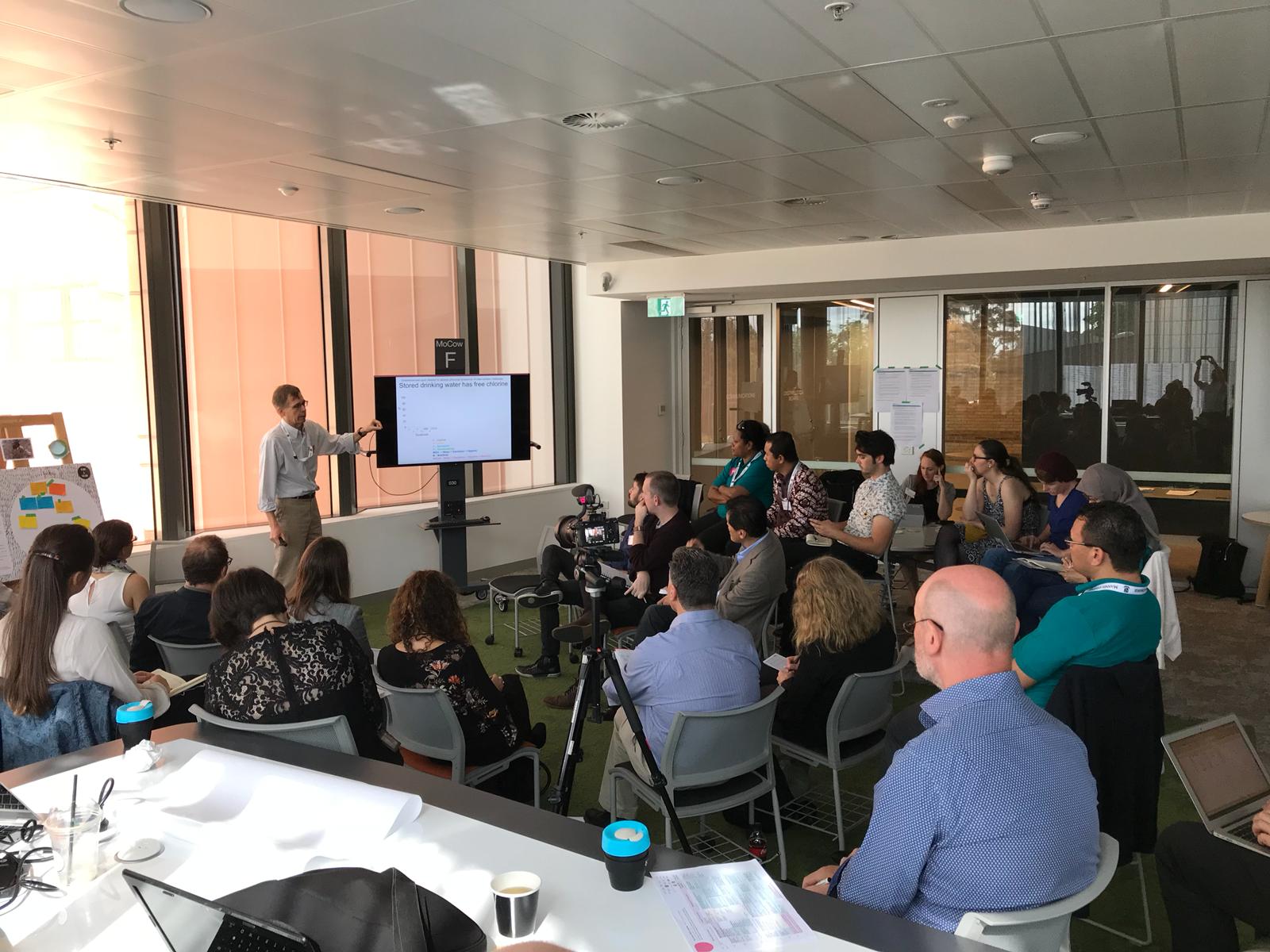RISE science panel addresses human exposure pathways

How are children in informal settlements in developing countries really getting sick? What are the human exposure pathways to illness in these settlements? And to what extent is water a pathway? These were some of the questions the RISE (Revitalising Informal Settlements and their Environments) International Scientific Advisory Panel addressed when it met for the first time in late 2018.
The six-member advisory panel from Australia, the UK, the USA, and India held its discussions on human exposure pathways at the RISE annual workshop, a week of meetings held at Monash University’s Clayton campus from 26–30 November 2018.
Around 70 RISE leadership team members, including CRCWSC CEO and RISE Intervention Leader Tony Wong, researchers and senior in-country colleagues came together for the week-long workshop. They also discussed gender and social inclusion, integrated planning for the RISE project underway in Makassar, co-designing and scaling up RISE activities, and breaking down barriers to interventions for informal settlements. Planning for in-country activities for 2019 was also a feature.

Key discussions during the week centred around how to balance the need for rigorous scientific research with the realities of field assessments. Great progress was made on some important decisions, and participants felt renewed enthusiasm as the program heads into 2019.
Many high level attendees travelled to Melbourne for the event, including the RISE International Scientific Advisory Panel members:
- Honorary Professor Ted Bianco (Panel Chair)
- Professor Sarah Bell, Bartlett School of Environment, Energy and Resources, University College, London
- Assistant Professor Karen Coelho, Madras Institute for Development Studies, Chennai, India
- Visiting Professor Christopher Dye, Zoology, Oxford University
- Professor Paul Hunter, Norwich Medical School, University of East Anglia, UK
- Distinguished Professor Diana Wall, Department of Biology and Director, School of Global Environmental Sustainability, Colorado State University, USA.
Also in attendance were RISE Program Director Professor Rebekah Brown (Senior Vice Provost, Vice Provost (Research), Monash University); colleagues from Monash science, art design and architecture, engineering, medicine, business and economics faculties and the Monash Sustainable Development Institute; and senior staff from the RISE Fiji and Indonesia field teams.
RISE is a joint project to adapt and apply water sensitive principles and practices to address human health challenges in informal settlements in developing countries. The Wellcome Trust (UK) and the Asian Development Bank fund RISE, and the CRCWSC advises RISE on community engagement and nature based structural engineering solutions (such as constructed wetlands) for sanitation and clean water. A wide range of other partner institutions contribute their expertise.
Underpinned by the emerging discipline of ‘planetary health’, RISE success will be measured by the health and well-being of residents—particularly children under five years of age—and the ecological diversity of the surrounding environment.
The RISE research program commenced in August 2017 and will conclude in July 2022.
For more information about RISE, please contact Kerri Burge (kerrie.burge@monash.edu).